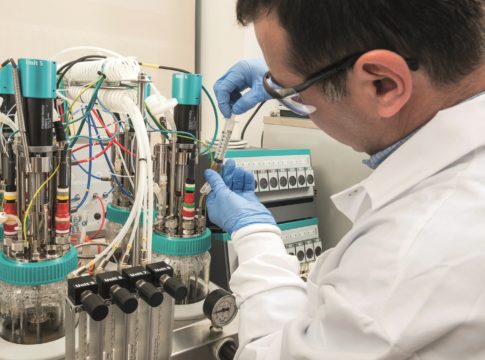in order for Egypt to reach its goals to become a digital and knowledge-based economy, the educational sector will be crucial, and as such forms an important pillar of the nation’s Vision 2030 strategy.
It is a sector which historically has been neglected and under-funded, leading to overcrowded classrooms and poor infrastructure. But a new drive to overhaul and modernize the system – led by Dr. Tarek Shawki, Egypt’s Minister of Education and Technical Education – is already underway, and over the last four years, private and public investment in education has increased significantly.
These investments will support Egypt’s goals under Vision 2030’s education pillar, which aim to increase the number of accredited schools by 60 percent; reduce illiteracy rates among 15-35-year olds to 7 percent (down from 28 percent in 2015); and improve the international competitiveness of primary education quality on the World Economic Forum’s (WEF) Global Competitiveness Index.
Egypt’s education reform program is also being supported by the World Bank, which in April announced it would provide $500 million “to help transform the education system through bold modernization initiatives”, which include: improving the quality of early childhood education; developing a reliable assessment and examination system; enhancing teachers, education leaders and supervisors skills; and implementing modern technology for teaching and learning, assessing students, and collecting data.
The project is in very much in line with Vision 2030’s sustainable development strategy, which puts a strong emphasis on the critical role of education sector reform in Egypt’s social transformation.
“September 2018 marks the start of the journey to make our students ready for life, and we are pleased to have this partnership with the World Bank to accompany us on that journey. Our goal is to provide our students with the competencies they need to create a society that learns, thinks and innovates,” said Dr. Shawki following the announcement in April.
Modernization and overhaul is also happening at university level, as Egypt aims to boost scientific research, reduce the gap between graduates’ skills and job market needs, and broaden access to third level education, all of which is being overseen by Khaled Abdel Ghaffar, the Minister of Higher Education and Scientific Research.
Crucial to these goals was the passing of a law in August that allows foreign universities to set up campuses in the country. The measure is expected to increase competition among universities, bring down tuition fees, expand the offer of subjects and faculties, develop scientific research and attract more international professors. And already a number of universities from the U.S., Canada and the U.K. are exploring possibilities of establish campuses in the country.
This bill came after an earlier law which was passed in May to establish eight technological universities, three of which are being constructed in New Cairo, Quesna and Beni Suef. Graduates of the technical education will have the chance to apply for the technological universities and complete postgraduate studies, which in turn could serve the state’s development and industrial plans and secure more jobs.
But it’s not just new universities that will support the modernization drive, so too are the nation’s existing institutions, both public and private.
Established in 2006 by the Azazy Group, Future University (FU) has taken on the task of reinvigorating the country’s higher educational system with an innovative approach that incorporates the best practices and standards from leading institutions from around the world.
Located in Cairo, FU provides a unique learning environment and utilizes cutting-edge technology to provide students with a modern learning experience and English language instruction. The university is the brainchild of the late Dr. Hassan Azazy, an educational pioneer who devoted his career to bringing reform to Egypt’s educational system.
“The university was founded in 2006 and has experienced unprecedented growth, even through the revolution,” says Khaled Azazy, Chairman of Azazy Group.
“We are approved as an institution with a quality of education similar to the United States and United Kingdom. If a local or an international student here in Egypt is looking for education with these standards, it is available through Azazy Group’s various institutions.”
The Azazy Group is also investing in Knowledge City, a $12 billion project located in New Cairo, which will host branches of foreign universities and research, innovation and entrepreneurship centers along with a science park. With projects such as Knowledge City, Egypt is well on its way to establishing itself as a regional hub for higher education, science and technology, and achieving its Vision 2030 goals to build a sustainable, digital and knowledge-based economy.


